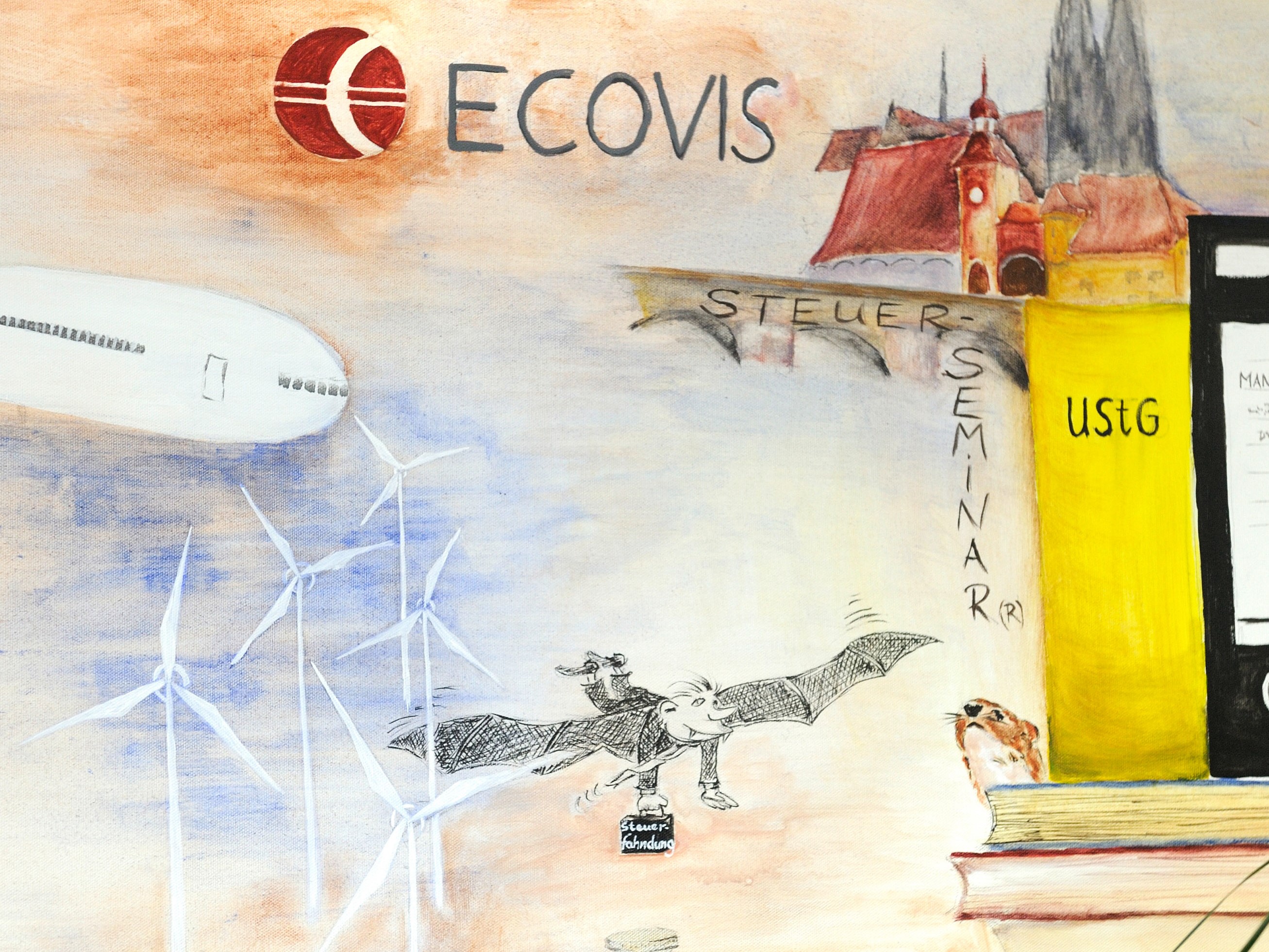Last will and inheritance in the Czech Republic. Inheritance proceeding and solving the estate in the Czech Republic
In the Czech Republic, there are two ways to deal with estate. The first is inheritance based on a succession from the law, which applies in the event that the decedent does not decide to express his will and does not divide the estate. If he intends to decide on his property, he can acquire it in the risk of death:
(i) by inheritance contract,
(ii) by a testament; or
(iii) by testamentary clause on legacy.
Types of testaments in the Czech Republic
The most common method of a disposition mortis causa is a testament. Its timely disposition can prevent many disputes between the heirs. This option is not only reserved for the citizens of the Czech Republic, but allows the foreigners to make a disposition mortis causa in the Czech Republic regarding any property. In such a case, the Czech Civil Code will in principle, govern the testament, although it is necessary and appropriate to respect any restrictions and conditions imposed by foreign law, where the testament should be performed (where the property and heirs affected by the testament are).
A foreigner’s testament or a foreign testament in the Czech Republic
In case of making testaments with an international element, questions arise of the recognition of such testaments in another legal order, whether regarding the recognition of foreign testaments in the Czech Republic or vice versa. Regulation (EU) No 650/2012 of the European Parliament and of the Council of 4 July 2012 on jurisdiction, applicable law, recognition and enforcement of decisions and the acceptance and enforcement of authentic instruments in matters of succession and on the creation of a European Certificate of Succession.
In case of succession proceedings, testaments will be recognised under the Regulation if they comply with the law of the state in which they were drawn up or if they comply with the law of the state, in which the decedent or one of the heirs resided, habitually resided or was a citizen. In case of immovable property, it is sufficient that the testament suits the state in which the immovable property is situated.
However, the enforcement of a testament and a decision in succession proceeding is subject to national law. In the event that a testament written in the Czech Republic is used in succession proceedings taking place abroad, it is necessary to take into account that its course may be affected by foreign regulations.
The situation is different if the citizen is a citizen of a non-EU country. In such case, these legal relations will not be governed by the above-mentioned Regulation, but by private international law. This law regulates relations with the international element, i.ee cases where, for example, the person concerned is a citizen of a state other than the one in which he or she resides permanently. In the Czech Republic, the criterion of nationality applies in these cases. This means that if a citizen dies in the Czech Republic, e.g. a United States citizen, residing in the Czech Republic, US law will apply to the matter.
However, some countries use a different approach to this issue. We can imagine such case, for example, in relation to a movable thing that the decedent has with him at the time of his death, but he also owns real estate in the territory of another state. All things belonging to the estate will be governed by the law of the state of jurisdiction of the decedent, even if they are located in the territory of another state. It follows that if the decedent is a Czech citizen, Czech law will apply to his estate, even if parts of his estate are located in e.g. Germany. The following example demonstrates the issue of a movable and immovable thing as part of the estate.
The decedent resides in Germany and dies as a partner in an LLC, which is registered in the Czech Republic. The articles of contract of partnership also stipulate that the shareholder's share may be transferred to the heirs. It follows that German law will govern the acquisition of a share, but Czech law will govern the transfer of ownership of things located in the Czech Republic.
A testament in the Czech Republic
A will is a revocable written expression of will whereby the decedent determines during his life how his property is to be distributed after his death. This expression of will must be comprehensible and made without coercion, by a person qualified to do so. A will can be made in the form of a private instrument or a notarial deed.
A testament made in the Czech Republic by a private instrument
In the form of a private instrument, a testament can be written with one's own hand and signed. In such case, it will be a holographic testament. In the event that it is written in another way and only signed by the decedent, it is necessary that two witnesses, who may not be affected by the signed part, sign it at the same time. In the case of blind persons and persons with sensory disabilities, three witnesses are required and the testament must be interpreted to them using a special means of communication.
A testament made in the Czech Republic by a public instrument
In case of drafting a will by notarial deed, the advantage is that the notary who draws up the testament must be convinced that the decedent is not forced to write it, he does so with prudence and seriously. In this case, the will is deposited by a notary in the electronic Register of Legal Proceedings in the Event of Death kept by the Notary Chamber of the Czech Republic, and no one other than the notary and persons authorised by him has access to it. In case of succession proceedings in the Czech Republic, the Czech notary will always check for the existence of a notarial testament, i.e. it is certain that the testament will be found under the death of the decedent and cannot be "lost". However, in this way a notary can also keep a testament made as a private instrument.
A testament with relief
In extraordinary life-threatening situations, the Czech Civil Code allows the disposition of a testament that does not contain all the legal requirements. These are situations that do not allow the decedent to make a will in writing, and therefore it is possible to do so, for example, by a statement before the mayor, the commander of a vessel or aircraft or the commander of a military unit. Such testaments have a limited period of validity and the time limit begins at the time when the decedent can obtain a testament in the form of a public instrument.
Contents of a testament written in the Czech Republic and clauses of lesser importance
In addition to the division of the property by the testament, the decedent has the option of imposing the so-called clauses of lesser importance on the heirs in the testament, which may take the form of a mandate, condition or determination of time. In such a case, however, the clauses which harass the heirs, prove the decedent's arbitrariness, are clearly contrary to public order, are incomprehensible or impossible are disregarded. Nor can the personal and marital rights be infringed.
Substitution of heirs in a testament
The decedent has the option to designate a substitute heir in the event that the heir does not become the person he has appointed. Substitute heirs can also be appointed for these substitute heirs in order to guarantee that at least some of the persons designated by the decedent will eventually inherit the inheritance. A special type of substitution is succession by fideicommissum, where the decedent may order the heir to transfer the inheritance to the appointed heir after his death, or in another designated case. Such heir may use the inheritance, but may not alienate it.
Cancellation of testament in the Czech Republic
The decedent has the right to cancel the testament at any time, upon either revocation or the making of a new one. The appeal is achieved both by a declaration in the same form that he chose for its creation, or by its destruction or the issuance of a will made by a notarial deed back to the decedent.
Inheritance contract and testamentary clause on legacy
In addition to a testament, it is possible to negotiate an inheritance contract in the Czech Republic, which, unlike a testament, is a bilateral act in which the decedent calls the other party as heir and the other party must accept it. At the same time, however, it is necessary for its cancellation that the heir agrees. Its form must always be in the form of a public instrument and may cover a maximum of three quarters of the estate. It is necessary to decide otherwise on the last quarter, for example by a testament.
The testamentary clause on legacy is similar to a testament, but does not serve to appoint heirs. If the legacy, mandate or determination of time is not part of the will, it is possible to modify it separately by just a testamentary clause on legacy.
Pro více informací nás kontaktujte na:
JUDr. Mojmír Ježek, Ph.D.
ECOVIS ježek, advokátní kancelář s.r.o.
Betlémské nám. 6
110 00 Praha 1
e-mail: mojmir.jezek@ecovislegal.cz
www.ecovislegal.cz
O ECOVIS ježek, advokátní kancelář s.r.o.
Česká advokátní kancelář ECOVIS ježek se ve své praxi soustřeďuje především na obchodní právo, nemovitostní právo, vedení sporů, ale i financování a bankovní právo a poskytuje plnohodnotné poradenství ve všech oblastech, a tvoří tak alternativu pro klienty mezinárodních kanceláří. Mezinárodní rozměr poskytovaných služeb je zajištěn dosavadními zkušenostmi a prostřednictvím spolupráce s předními advokátními kancelářemi ve většině evropských zemí, USA a dalších jurisdikcích v rámci sítě ECOVIS působící v 75 zemích celého světa. Členové týmu advokátní kanceláře ECOVIS ježek mají dlouholeté zkušenosti z předních mezinárodních advokátních a daňových firem v poskytování právního poradenství nadnárodním korporacím, velkým českým společnostem, ale i středním firmám a individuálním klientům. Více informací na www.ecovislegal.cz.
Informace obsažené na této webové stránce jsou právnickou reklamou. Nepovažujte nic na této webové stránce za právní poradenství a nic na této webové stránce nepředstavuje vztah advokát-klient. Předtím, než začnete jednat o čemkoliv, o čem si na těchto stránkách přečtete, domluvte si právní konzultaci s námi. Dosavadní výsledky nejsou zárukou budoucích výsledků a předchozí výsledky neznamenají ani nepředpovídají budoucí výsledky. Každý případ je jiný a musí být posuzován podle vlastních okolností.














